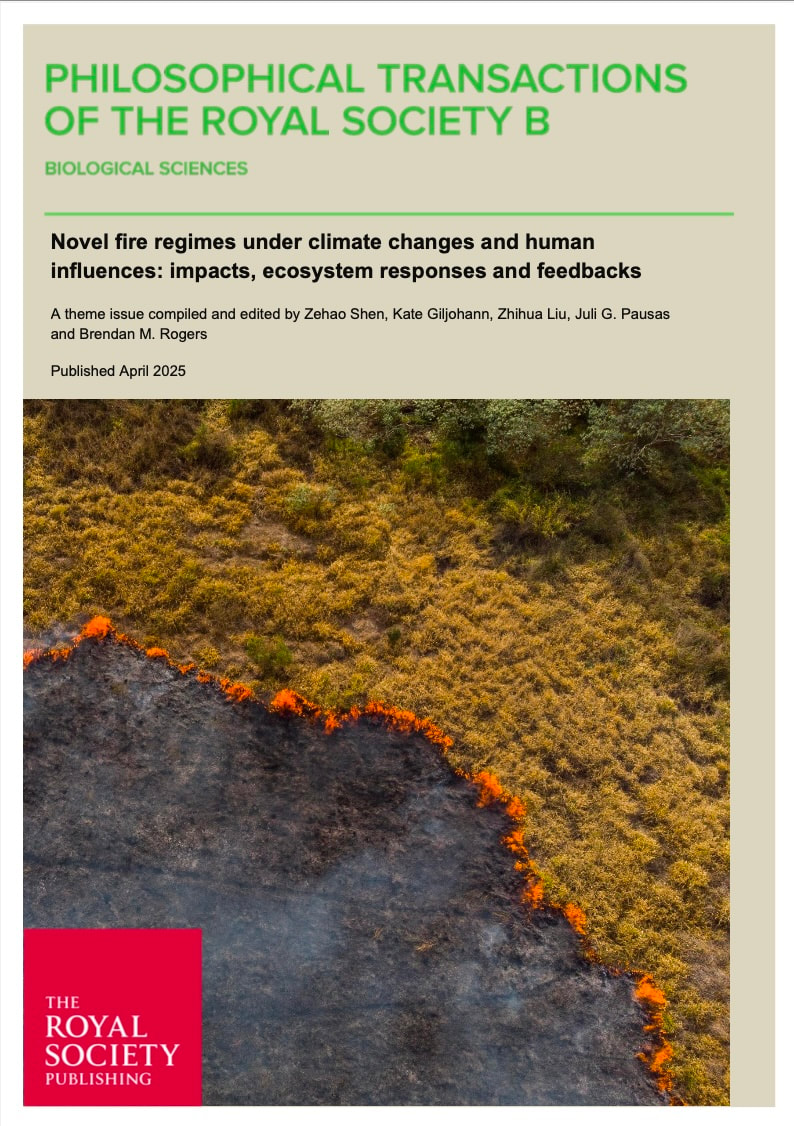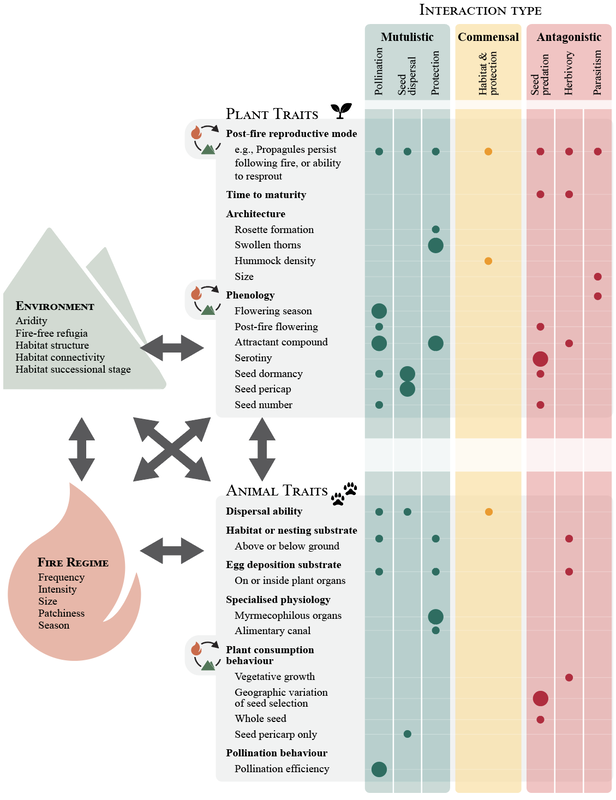April 2025: Fire has played a key role in the evolution of ecological structure and function, but contemporary changes in fire regimes are driving global biodiversity declines. The effects of these changes are fairly well documented for plant and animal populations, but less is known about how fire influences, and is influenced by, specialized plant–animal interactions.
A new paper by Smith Lab PhD Student Felicity Charles, synthesised the literature to show how fire regime changes impact fire-dependent specialist plant–animal interactions and potentially drive eco-evolutionary dynamics. Felicity identified mutualistic (pollination, seed dispersal and food provision), commensal (habitat provision) and antagonistic (seed predation, herbivory and parasitism) plant–animal interactions and summarised the traits involved in these interactions.
This work is a step-forward in understanding how traits interact across species and fire regimes and will help guide future fire ecology research.
This article is part of the theme issue ‘Novel fire regimes under climate changes and human influences: impacts, ecosystem responses and feedbacks’. This theme issue highlights the unprecedented importance of transdisciplinary research and adaptive management to address escalating fire risks in a changing climate.
A new paper by Smith Lab PhD Student Felicity Charles, synthesised the literature to show how fire regime changes impact fire-dependent specialist plant–animal interactions and potentially drive eco-evolutionary dynamics. Felicity identified mutualistic (pollination, seed dispersal and food provision), commensal (habitat provision) and antagonistic (seed predation, herbivory and parasitism) plant–animal interactions and summarised the traits involved in these interactions.
This work is a step-forward in understanding how traits interact across species and fire regimes and will help guide future fire ecology research.
This article is part of the theme issue ‘Novel fire regimes under climate changes and human influences: impacts, ecosystem responses and feedbacks’. This theme issue highlights the unprecedented importance of transdisciplinary research and adaptive management to address escalating fire risks in a changing climate.
Charles FE, Reside AE, Smith AL (2025). The influence of changing fire regimes on specialised plant-animal interactions. Philosophical Transactions of the Royal Society of London B 380, 20230448.

